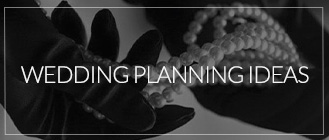So beautiful, yet challenging at the same time is love. Nothing develops us like partnerships: it is a solid platform for self-growth.
The idea of long-term commitment often brings to mind deep emotional connection, unshakable trust, and cozy Sunday mornings. But sometimes, it also sparks a quiet fear of losing ourselves. It can be especially difficult to enter a new relationship and rely on another person if you have been without a relationship for a long time. But deep, intimate relationships—this isn’t about losing yourself! While we do consider the other person, the reality is quite the opposite of what many fear. In committed relationships, we don’t lose who we are—we discover and understand ourselves even more. And that is true abundance and freedom.
Real, lasting love isn’t about giving up your independence. A truly thriving partnership is one where freedom in relationships isn’t just allowed—it’s encouraged. You can be deeply committed to someone and, at the same time, have the space to grow, explore, and be your own person. That’s when love feels abundant, exhilarating, and, most importantly, real. So, let’s talk about how to create a relationship that’s not just about sticking together but actually thriving together.
.webp)
Commitment and Freedom: Can You Have Both?
Of course! And that's how it should be in a healthy relationship. Commitment is often painted as the villain that steals away spontaneity, adventure, and independence. But let’s clear something up: commitment isn’t the problem. The problem is when commitment becomes control.
A committed relationship doesn’t mean morphing into one person with your partner. It’s not about giving up your passions, friendships, or sense of self. Instead, it’s about choosing to be with someone while still embracing your individuality. A relationship should be like a dance. The best dancers move in sync but still have their own rhythm. They step together and apart, twirling independently before reconnecting. In the same way, partners in a thriving relationship support each other’s freedom without feeling threatened by it.
Real-Life Example: The Weekend Getaway Dilemma
Let’s say you love hiking, but your partner would rather stay home with a good book. Do you cancel your trip because they don’t want to come? Absolutely not! A relationship built on trust allows you both to enjoy separate passions without resentment. You head off on your adventure, they dive into their latest novel, and when you reunite, you both have fresh energy to bring into the relationship. That’s abundance in love—not scarcity, not restriction, just a beautiful blend of togetherness and personal fulfillment. And you both—aware enough to recognize that spending time alone, pursuing your own interests, isn’t just possible but necessary. And with that, no jealousy!
.webp)
Building Trust in Relationships: The Foundation of Freedom
The tricky thing about freedom in relationships is that it only works if there’s trust. Otherwise, it starts to feel more like neglect or emotional distance. So, how do you build the kind of trust that allows both commitment and independence to coexist?
Ways to Build Trust:
- Work on yourself. If things like jealousy don't exist in your energy space, you will radiate it and attract an honest, trustworthy, mature partner who respects you and themselves.
- Honesty, always. No sugarcoating, no little white lies. Just real, open communication.
- Follow through on your word.
- Support, don’t suffocate. Let your partner have their space without making them feel guilty for it.
One of the biggest mistakes couples make is thinking that closeness equals control. But true intimacy isn’t about keeping tabs on each other—it’s about knowing you’re both in this together, no matter where you are or what you’re doing.
.webp)
How to Deepen Emotional Intimacy:
- Ask real questions. “How was your day?” is fine, but “What’s something that made you laugh today?” sparks actual connection.
- Be present. Put the phone down. Look them in the eyes. Listen—not just to respond, but to understand.
- Share the little moments. The morning coffee ritual, inside jokes, lazy Sunday afternoons—these small things create the biggest bonds.
A healthy relationship isn’t just about being together—it’s about truly seeing, hearing, and understanding each other. That’s what makes long-term commitment feel effortless. It also matters what your and your partner's love language is, and it can differ. Maybe you value time spent together, while your partner values small things you do for them - coffee in bed, ironed clothes, a delicious dinner...
READ ABOUT LOVE LANGUAGES
.webp)
What if Things Start to Feel Unbalanced?
Maybe one partner is craving more independence, while the other is feeling a little neglected. It happens, and it doesn’t mean the relationship is doomed. The key is recognizing the signs early and making adjustments before resentment sets in.
Signs of Too Much Commitment (Feeling Trapped):
- You feel guilty for wanting alone time.
- You’ve stopped pursuing your own hobbies or friendships.
- Your relationship feels more like a duty than a choice.
If you experience these feelings in your relationship - observe them soberly and analyze whether they are toxic. Ask yourself: Can I feel safe to be free and authentic and talk about my true emotions in this relationship?
.webp)
Signs of Too Much Freedom (a.k.a. Growing Apart):
- You rarely check in with each other.
- You feel emotionally disconnected.
- You’re more excited to spend time alone than together.
Is this kind of relationship what you want your whole life?
Conclusion
At the end of the day, love should feel like a safe place. The secret to a thriving partnership is knowing that commitment and freedom in relationships aren’t opposites. They’re two sides of the same coin. You can be deeply committed and still have the space to grow. You can cherish your independence and still prioritize your relationship.
So, if you’re in a long-term commitment, ask yourself: Do we support each other’s individuality? Do we trust each other enough to embrace freedom without fear? Do we nurture our emotional connection as much as our practical one? If the answer is yes, congratulations—you’ve found the sweet spot where love truly thrives.
Author: Ieva Simanoviča






.webp)
.webp)
.webp)
.webp)
.webp)





